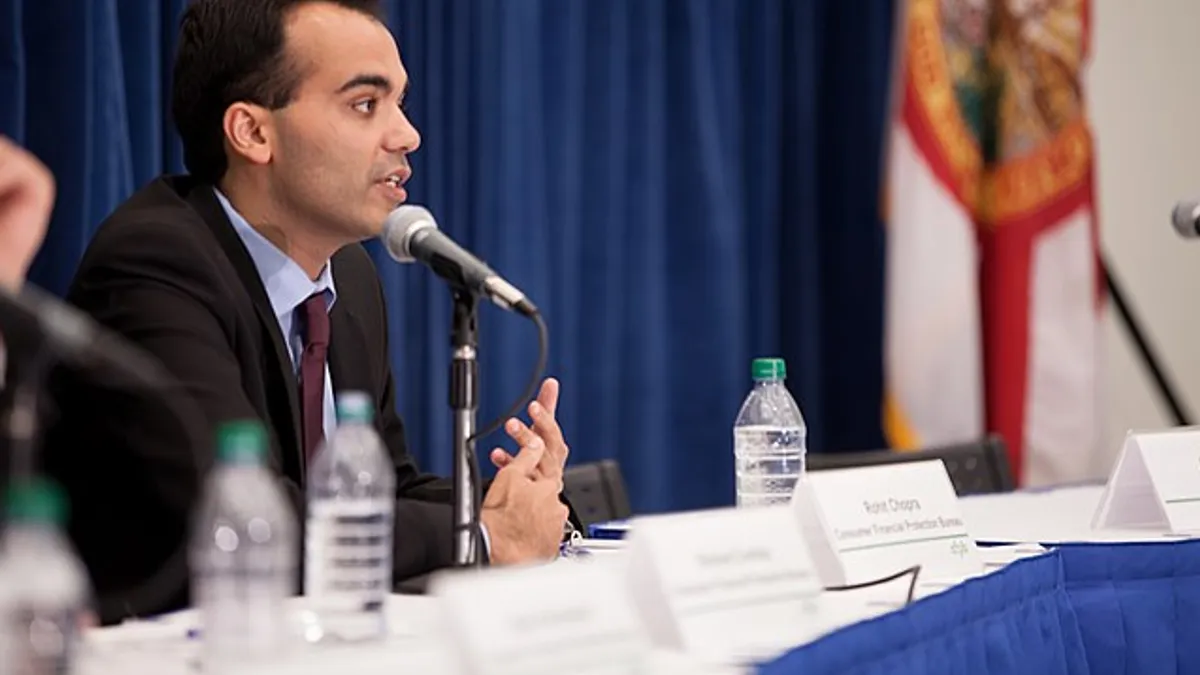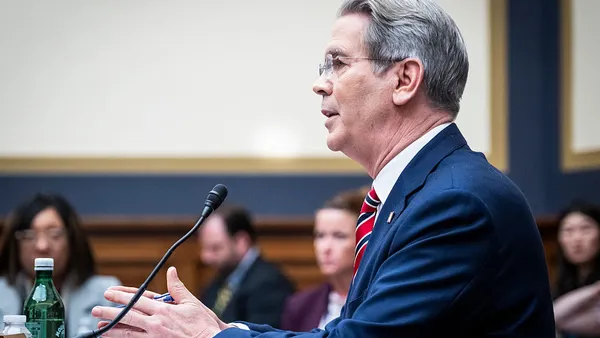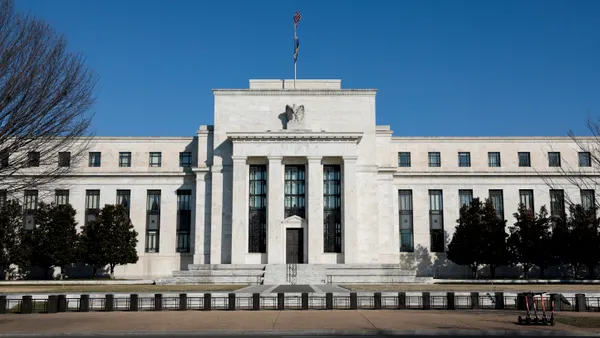Dive Brief:
- Consumer Financial Protection Bureau (CFPB) Director Rohit Chopra advocated for harsher penalties for banks that repeatedly violate consumer protection laws in a speech Monday at the University of Pennsylvania's Carey Law School.
- A bank’s penalty for repeatedly breaching the law, under the status quo, is usually a hefty fine or callout by officials, Chopra said. The CFPB chief, however, called for the bureau to work in concert with other regulators to give banks new punishments, such as stripping operating licenses and special government privileges from repeat offenders.
- Chopra specifically named Wells Fargo, Citi, JPMorgan Chase, American Express and Discover as repeat corporate lawbreakers.
Dive Insight:
Chopra, in Monday’s speech, said he sees a disparity between the effect of penalties on big banks that break the law and those on smaller ones.
“In the end, large dominant firms should be subject to the same consequences of enforcement actions as small firms, given that the laws are the same,” he said, according to Bloomberg Law.
That could mean forcing big companies to sell business units, fining top executives, revoking access to deposit insurance or shuttering a large institution if it comes to it, Chopra said.
While smaller companies can crumble under the weight of sanctions, Chopra said, larger ones can write off settlements and continue relatively unscathed — creating a tiered justice system.
“Many large institutions see the law as mere expenses on their income statement,” Chopra said, according to American Banker. “How do we stop large, dominant firms from violating the law over and over again with seeming impunity?”
To that end, the CFPB intends to establish a new unit in the agency’s supervision and enforcement division specifically intended to catch repeat corporate offenders, Chopra said.
In just over a decade, the CFPB has taken action against Citi five times, JPMorgan Chase four times, Wells Fargo four times, American Express three times, and Discover three times, Chopra said.
Chopra proposed that banks that repeatedly break the law should face heightened penalties that require cooperation from other regulators, including the Federal Deposit Insurance Corp. (FDIC), the Federal Reserve and the Securities and Exchange Commission (SEC).
The CFPB chief lauded the Fed’s decision to impose a $1.95 trillion asset cap on Wells Fargo in the wake of the 2016 fake-accounts scandal as one of the most effective recent regulatory actions.
Chopra advocated for penalties stiff enough to spur corporate boards into action.
“Corporate boards will go to great lengths to shield executives from scrutiny even though they're all bound by agency orders,” Chopra said, according to American Banker.














